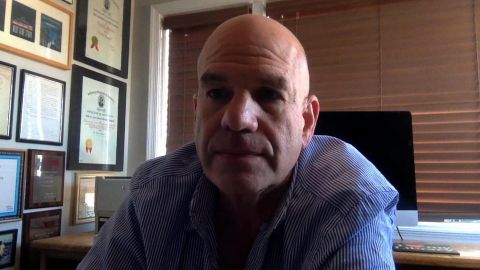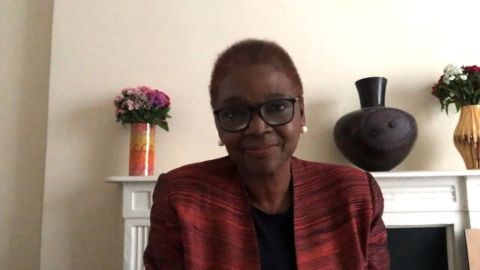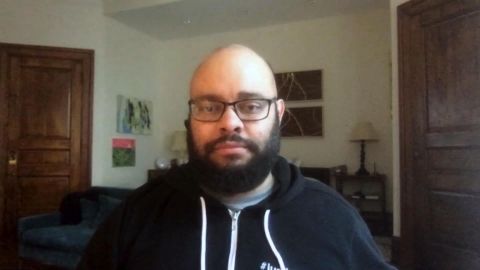Read Transcript EXPAND
CHRISTIANE AMANPOUR: But, as you know, and we started with this introduction, that police have been glorified in American culture, whether it’s on film or in television, in books, whatever it is. Some of them have now been removed from the air in response to what happened to George Floyd. Just where do you fit into this? I’m going to get into the why in a second, but what do you think about the glorification of police on television? And has that played into a sort of invincibility, top-of-the-pyramid kind of characteristic?
DAVID SIMON, CREATOR, “THE WIRE”: Well, it depends on the television show, doesn’t it? I think in the beginning with “Dragnet,” going back to the very beginnings of the police serial, the idea of the police as the thin blue line has been the paradigm. And the idea that they were enforcing laws that we all collectively wanted enforced was the assumption. I don’t feel any need to defend “The Wire” or “The Corner,” which were the two pieces I did that I’m responsible for. They are, in fact — they, in fact, exist as an actual critique of the drug war. They are arguing that the policy itself is not only structurally unsound, but it’s contributing to the disaster, that we have to walk away from this stuff. So, what we did was an actual argument against the structure as it exists. That said, there is something in the American psyche that’s fascinating, which is, we probably have two cultural art forms that are our own when it comes to film and television, maybe three if you count the musical, but that’s sort of theater. But we had the Western. And the Western — the iconic American Western was always, one man stands between chaos and civilization. He may not be a part of that civilization. He may be a gun fighter. He may be the loner, but he’s larger than the law, and he’s bigger than life, and he will effect change.
And that is the power of the American Western going back to John Ford. Now the Western is passe. Our frontier is closed. We no longer ride horses into the sunset, but what we have then as our frontier is the urban frontiers, are the cities and the portions of American cities where some people think they dare not tread. It is the Wild West in our minds, in our minds. It’s not. These are communities that need to be addressed as if they’re part of America, but this is — the culture of the American Western has now been grafted on over generations to a lot of programming about police. So, the idea that the officer who is bigger than the system, who is bigger than the law, who is all that stands between you and chaos, that has its origins in the American Western and in our own sense of ourselves on the frontier. Maybe I’m talking in film theory, but a lot of what used to be in “Gunsmoke” and “Bonanza” and all that stuff was delivered to the police procedural.
About This Episode EXPAND
Christiane speaks with Baroness Valerie Amos about the UK’s new commission to investigate racial inequality. She also speaks with David Simon, creator of “The Wire,” about the role of cops in the American public imagination. Michel Martin speaks with law enforcement scholar Phillip Atiba Goff about fighting implicit biases in police departments.
LEARN MORE


